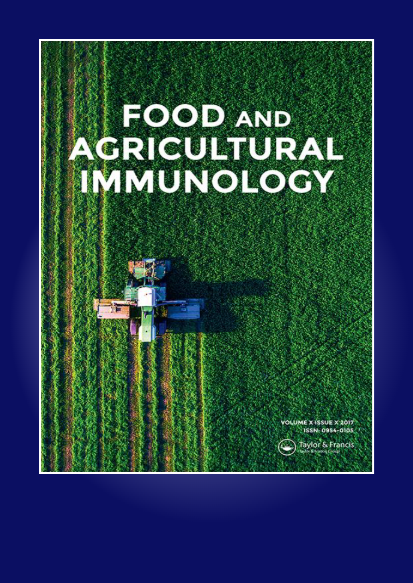香蕉淀粉干预通过调节糖尿病大鼠的肠道微生物群-脑轴改善糖尿病诱导的情绪障碍
IF 2.1
3区 农林科学
Q3 CHEMISTRY, APPLIED
引用次数: 2
摘要
富含抗性淀粉的香蕉(Musa spp.)对糖尿病有多种健康益处。在这里,我们发现香蕉淀粉给糖尿病大鼠改善情绪障碍动物抑郁样行为。与对照组大鼠相比,给高糖、高脂肪和stz诱导的糖尿病大鼠喂食四周的香蕉淀粉降低了它们的血液胰岛素抵抗,但增加了它们的血浆高密度脂蛋白胆固醇和5-羟色胺水平。香蕉淀粉饮食重建了糖尿病大鼠的肠道菌群,增加了它们的代谢物丁酸盐,并增加了超氧化酶的活性。此外,香蕉淀粉干预显著增加了糖尿病大鼠的疲劳时间,在游泳和悬尾试验中几乎恢复到对照组的正常状态。总之,我们的研究结果表明,肠道-微生物-大脑轴的调节可能是一种机制,使香蕉淀粉饮食成为糖尿病相关情绪障碍的潜在治疗方法。本文章由计算机程序翻译,如有差异,请以英文原文为准。
Banana starch intervention ameliorates diabetes-induced mood disorders via modulation of the gut microbiota-brain axis in diabetic rats
ABSTRACT Bananas (Musa spp.) enriched in resistant starch displayed multiple health benefits for diabetes. Here, we showed that banana starch administered to diabetic rats improved animal depressive-like behaviours of mood disorders. Four weeks of banana starch diet to high-sugar, high-fat, and STZ-induced diabetic rats lowered their blood insulin resistance, but increased their plasma HDL cholesterol and 5-HT levels, compared to the control groups of rats. The banana starch diet reconstructed the gut microbiota and increased their metabolite of butyrate, as well as increased the activity of superoxidase in diabetic rats. Furthermore, Banana starch intervention significantly increased the exhaustion time of the diabetic rats, and almost restored it to the normal state of control groups in their swimming and tail suspension tests. Together, our results indicated the modulation of the gut-microbiota-brain axis as a possible mechanism that enables the banana starch diet as a potential therapeutic way for diabetes-associated mood disorders.
求助全文
通过发布文献求助,成功后即可免费获取论文全文。
去求助
来源期刊

Food and Agricultural Immunology
农林科学-毒理学
CiteScore
5.30
自引率
6.70%
发文量
52
审稿时长
2 months
期刊介绍:
Food and Agricultural Immunology is an international open access journal publishing original immunological research with applications in food, agricultural, environmental and veterinary science. Submissions describing the use of immunological techniques and methods are particularly welcomed.
The journal aims to expand our understanding of the interactions at the interface of food and immune systems including studies on:
-Development of diagnostic systems – all types of ligand-based assays, e.g. antibody, aptamer
-Application of ligand-based assays for the detection or identification of molecules of interest in food science, agricultural research, veterinary investigations and clinical systems relating to food allergy or sensitivity to agricultural chemicals
-Effects of food on the immune system
-Studies on allergy and allergic reactions
-Investigations into food allergies
-Development of allergen-free food systems
-Development of novel assay formats
-Applications of assay systems to the monitoring of food items in relation to safety and labelling
-Food quality issues, e.g. speciation, adulteration and contamination
-Comparisons between different analytical techniques
The journal publishes research and review articles and is essential reading for food scientists, immunologists and all those concerned with the interaction between food and immune systems.
 求助内容:
求助内容: 应助结果提醒方式:
应助结果提醒方式:


